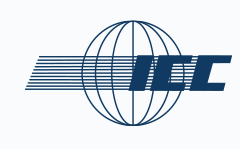Proposal
The purpose of this paper is to explore whether undirected) randomized energy through physicochemical laws (Chaos) could make functional proteins necessary for cellular life. Both downhill and uphill work are explained. These two types of work are further explained as thermal entropy work and configurational entropy work. The four requirements for making a single functional protein of living systems are as follows: use of only left-handed amino acids, use of only peptide bonds, linking of amino acids in correct order, and prevention of other organic molecules joining the chain. Random methods (Chaos) violate all these requirements. Therefore, the correct three-dimensional structure of functional proteins cannot be developed by undirected physicochemical laws which do not perform configurational entropy work. It is clear that there needs to be an outside intelligent agent (Logos) to fulfill these requirements. An unbiased observer would have great difficulty denying the rationality of inferring from the complexity of functional proteins and a living cell the activity of a "Logos" which is the prime component of the creation model .
Keywords
Creationism, functional proteins, chaos, logos
Print Reference
Volume 2:I, Pages 123-126
Copyright
© 1990 David Kaufman. All rights reserved.
Disclaimer
The CedarCommons repository provides a publication platform for fully open access journals, which means that all articles are available on the Internet to all users immediately upon publication. However, the opinions and sentiments expressed by the authors of articles published in our journals do not necessarily indicate the endorsement or reflect the views of Digital Services, the Centennial Library, or Cedarville University and its employees. The authors are solely responsible for the content of their work. Please address questions to the Digital Services staff.
Recommended Citation
Kaufman, David A.
(1990)
"Functional Proteins: Chaos or Logos,"
Proceedings of the International Conference on Creationism: Vol. 2, Article 23.
Available at:
https://digitalcommons.cedarville.edu/icc_proceedings/vol2/iss1/23

